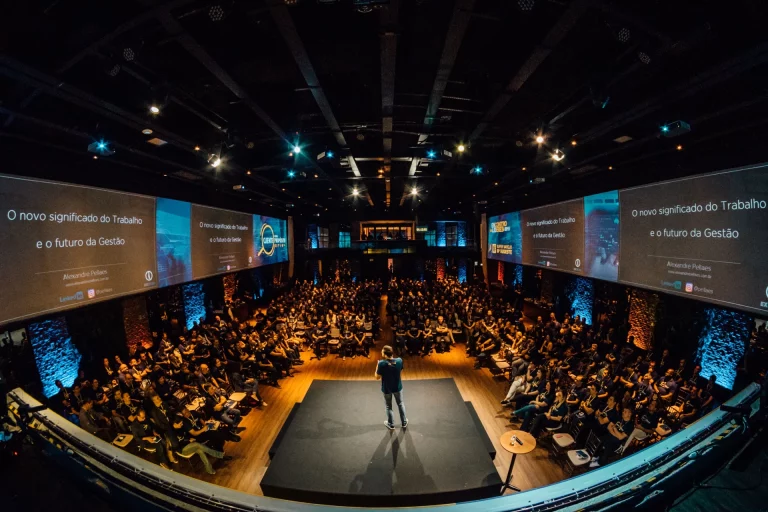Motivating Knowledge Workers: Effective Strategies for Inspiring Your Team
As a manager or leader of a team of knowledge workers, you understand the importance of keeping them motivated and engaged in their work. However, with the unique characteristics and skills of knowledge workers, it can be challenging to find the right strategies to manage their performance and keep them productive and inspired.
In this section, we will explore effective strategies for managing and motivating knowledge workers.

You will learn the importance of understanding their unique needs, fostering a positive work environment, setting clear expectations and goals, providing autonomy and flexibility, recognizing and rewarding excellence, and encouraging professional development. With real-life examples to inspire and engage your team, you can retain top talent in your organization and drive long-term growth and productivity.
Key Takeaways:
- Understanding the characteristics and motivations of knowledge workers is crucial for tailoring your approach to their needs.
- A positive work environment that promotes collaboration, feedback, and continuous learning is essential for motivating knowledge workers.
- Setting clear expectations and goals, and aligning individual and organizational objectives, is vital for keeping your team focused and motivated.
- Providing autonomy and flexibility can enhance motivation, productivity, and job satisfaction for knowledge workers.
- Recognition and rewards play a vital role in motivating knowledge workers and creating a culture of appreciation within your team.
- Nurturing the professional development of knowledge workers is integral to their growth and motivation, providing training, mentorship, and growth opportunities.
Understanding Knowledge Workers
It’s always important to have motivation in business. Managing knowledge workers requires a deeper understanding of who they are and what motivates them. Unlike traditional workers, knowledge workers rely heavily on their expertise, creativity, and problem-solving skills to perform their jobs. They are highly educated, often with advanced degrees, and are constantly learning and adapting to new technologies and developments in their field.
Knowledge workers are typically self-motivated and driven by a sense of purpose and fulfillment in their work. They value autonomy and flexibility in their job, as well as opportunities for growth and professional development. As a manager, it’s important to recognize and nurture these unique characteristics to keep your knowledge workers engaged and productive.
However, managing knowledge workers also comes with its challenges. Due to the nature of their work, it can be difficult to measure their performance and impact on the organization. As a result, it’s crucial to establish clear goals and expectations, provide regular feedback and support, and offer a work environment that fosters collaboration and innovation.
In the following sections, we will explore effective strategies for motivating and managing knowledge workers, including creating a positive work environment, setting clear expectations and goals, providing autonomy and flexibility, recognizing and rewarding excellence, and encouraging professional development. By adopting these approaches, you can build a strong team of knowledge workers and drive long-term success for your organization.
Creating a Positive Work Environment
Creating a positive work environment is crucial in motivating knowledge workers to achieve their full potential. By promoting collaboration, providing feedback, and fostering a culture of continuous learning and growth, you can inspire your team to do their best work. Here are some motivating knowledge workers examples to help you get started:
- Encourage teamwork: One of the best ways to motivate knowledge workers is to encourage teamwork. By fostering a collaborative culture, you can help your team members feel supported and valued. This can lead to greater job satisfaction and increased motivation.
- Provide regular feedback: Providing regular feedback is essential in helping knowledge workers grow and develop. By offering constructive criticism and positive reinforcement, you can create a culture of continuous learning and improvement.
- Celebrate achievements: Celebrating your team’s achievements is a great way to foster a positive work environment. By acknowledging their hard work and contributions, you can create a culture of appreciation and recognition.
- Offer training and development: Providing your team with opportunities for training and development can help them stay motivated and engaged. Knowledge workers thrive on learning and growth, so investing in their professional development can lead to increased job satisfaction and productivity.
By implementing these motivating knowledge workers examples, you can create a positive work environment that inspires your team to do their best work. Remember, knowledge workers are unique and require tailored management approaches. By understanding their specific needs and motivations, you can motivate them to achieve their full potential.
Setting Clear Expectations and Goals
When managing knowledge workers, it’s essential to set clear expectations and goals for them to achieve. By communicating precisely what is expected of them, you can prevent any confusion or misunderstandings that may arise. Additionally, it enables them to stay focused on what is essential for the organization and motivates them to work towards achieving the set goals.
The Importance of Goal Setting
Inspire your team of knowledge workers by setting SMART (Specific, Measurable, Achievable, Relevant, and Time-based) goals. This approach provides a clear understanding of what they need to achieve and by when without putting undue pressure on them. The goals should align with the organization’s objectives, allowing your team to feel a sense of purpose and direction, and stay motivated.
| EXAMPLE | NOT SO GREAT |
| Specific: Increase the monthly sales by 15%. | General: Sell more products. |
| Measurable: Increase production output to 25 units per day | Non-measurable: Improve efficiency. |
| Achievable: Increase customer satisfaction ratings by 10% in 6 months. | Unattainable: Increase customer satisfaction to 100% in a month. |
| Relevant: Increase social media engagement by 20% in 3 months. | Irrelevant: Increase social media engagement by 20% without any impact on the company’s bottom line. |
| Time-Based: Increase the number of completed projects by 10% within a year. | Not time-based: Complete more projects. |
Providing Feedback
Provide constructive feedback regularly, focusing on their strengths and areas of improvement. By highlighting what they did well and where they can improve, they can learn from their experiences and continue to grow. Additionally, it gives them a sense of accomplishment and helps them stay motivated.
Use positive language when providing feedback. For example, instead of saying, “You did not complete the project on time,” say, “You completed 80% of the project within the given timeline, which is commendable. What steps can we take to complete the rest of the project within the deadline?”
Regularly check in with your team to see how they progress towards their goals. Celebrate small wins and encourage them to keep working towards achieving the set objectives.
“Feedback is the breakfast of champions.” – Ken Blanchard
Setting clear expectations and goals is crucial when managing knowledge workers. By providing a sense of direction, they can stay focused and motivated. Regular feedback can help them grow and reach their full potential, helping them achieve the set objectives.
- Set SMART goals.
- Provide constructive feedback.
- Celebrate small wins.
Providing Autonomy and Flexibility
One of the best ways to motivate knowledge workers is to give them autonomy and flexibility in their work. When workers have control over their schedules, tasks, and approach to work, they’re more likely to feel engaged and motivated.
For example, you could give your team members the freedom to work from home when they need to without requiring them to take a day off. This can allow them to balance their personal and professional lives better, resulting in a happier and more productive workforce.
Another way to provide flexibility is by allowing workers to choose their projects. If they are interested in a specific area of work, allow them to explore it further so they can take ownership of their work, leading to greater motivation.
Having autonomy can also help workers feel more invested in their work. Rather than feeling like they’re just following directives, they have a say in what they’re doing and can feel like they’re contributing to the company’s success. This is a significant motivator for many knowledge workers.
You can provide autonomy and flexibility to your team in many other ways, so don’t be afraid to experiment and find what works best for everyone. As you do so, you’ll likely find that your team’s motivation and productivity will increase, benefiting your employees and your organization.
Examples of Providing Autonomy and Flexibility
- They are allowing employees to choose their projects and workloads so they feel more in control of their work.
- Offering flexible work arrangements, like flexible start and finish times or remote work opportunities.
- Empowering workers to make more decisions about their work creates a sense of personal investment and purpose.
Recognizing and Rewarding Excellence
Recognizing and rewarding the excellent work of your knowledge workers is crucial for sustaining their motivation and engagement. When employees feel appreciated for their contributions to the organization, they are likelier to stay committed and loyal to the company.
Here are some motivating knowledge workers examples of how to recognize and reward excellence:
- Employee of the Month: Implement an employee of the month program that recognizes the top-performing employees in the organization. This recognition can be a certificate, trophy, or any other appreciation your employees would value.
- Monetary Rewards: Offering financial incentives for employees who achieve or exceed their performance goals is a great way to show that you value their hard work. This can come in bonuses, profit-sharing, or other monetary rewards.
- Public Praise: Publicly praising employees for their outstanding work makes them feel appreciated and valued. Share their achievements with the team during meetings or on the company’s social media pages.
- Career Advancement: Providing opportunities for career advancement, such as promotions, is a great way to show employees that their hard work is recognized and appreciated. It also encourages them to continue to develop their skills and perform at a high level.
Remember, recognizing and rewarding excellence shouldn’t be a one-time event. Regularly acknowledging and celebrating your employees’ achievements is essential for maintaining their motivation and engagement.

Encouraging Professional Development
One of the most effective ways to motivate knowledge workers is to provide opportunities for professional development. Knowledge workers thrive on learning and growth, and offering training, mentorship programs, and growth opportunities can go a long way in keeping them engaged and motivated.
When you invest in your team’s professional development, you’re not only helping them enhance their skills but also signaling that you’re committed to their long-term success. This can boost their loyalty and dedication to your organization, leading to higher retention rates and a more productive workforce.
Encouraging professional development can take various forms, including:
- Providing ongoing training sessions and workshops to help team members keep up with industry trends and advancements
- Pairing junior team members with experienced mentors to help them develop new skills and gain valuable insights
- Offering growth opportunities such as leadership roles, additional responsibilities, or cross-functional projects
By fostering a culture of continuous learning and development within your organization, you’ll be creating an environment where knowledge workers can thrive, feel valued, and remain motivated to achieve their goals.
Example: Give your team members the flexibility to attend conferences and events related to their field. Not only will they get to learn from experts in their area of specialty, but they’ll also feel supported in their professional development.
When it comes to motivating knowledge workers, investing in their professional development can be one of the most effective tools in your arsenal. By offering growth opportunities and signaling your commitment to their long-term success, you can create a motivated, engaged team that’s primed for success.
Conclusion:
In today’s fast-paced business world, motivating knowledge workers is crucial for any organization that wants to succeed. By understanding who they are and what they need, you can create a positive work environment and set clear expectations and goals that align individual objectives with organizational objectives.
Providing autonomy and flexibility, recognizing and rewarding excellence, and encouraging professional development are all effective strategies for motivating knowledge workers.
These techniques not only help inspire and engage your team but also ensure long-term growth and productivity for your organization. Remember, retaining top talent requires effort, and motivation is the key to achieving success. By implementing the strategies and real-life examples discussed in this article, you can inspire and retain your team of knowledge workers, driving organizational success.
So, take the time to foster a positive work environment and provide your team with the resources they need to grow and succeed.
With your guidance and support, your knowledge workers will be motivated to achieve their best work and contribute to the success of your organization.
“The great challenge to management today is to make productive the tremendous new resource, the knowledge worker.” – Peter Drucker
FAQs
How can I effectively motivate knowledge workers?
There are several strategies you can employ to motivate knowledge workers. Some examples include providing autonomy and flexibility in their work, setting clear expectations and goals, recognizing and rewarding excellence, and encouraging professional development.
Who are knowledge workers and what sets them apart?
Knowledge workers are individuals who primarily work with information, ideas, and knowledge. They often possess specialized skills and expertise. What sets them apart is their reliance on intellectual capabilities and their contribution to creating and leveraging knowledge within an organization.
How can I create a positive work environment for knowledge workers?
Creating a positive work environment involves promoting collaboration, providing feedback, and fostering a culture of continuous learning and growth. Encouraging open communication, offering support, and recognizing achievements can also contribute to a positive atmosphere.
Why is it important to set clear expectations and goals for knowledge workers?
Setting clear expectations and goals helps align individual objectives with organizational objectives. This clarity allows knowledge workers to understand what is expected of them and helps them stay motivated and focused on achieving success.
What are the benefits of providing autonomy and flexibility to knowledge workers?
Providing autonomy and flexibility allows knowledge workers to have more control over their work processes and decisions. It empowers them to take ownership of their tasks and can enhance their motivation and productivity.
How can recognition and rewards help motivate knowledge workers?
Recognition and rewards play a vital role in motivating knowledge workers. Acknowledging their contributions, celebrating achievements, and creating a culture of appreciation within your team can boost morale and foster a sense of value and satisfaction.
Why is encouraging professional development important for knowledge workers?
Encouraging professional development is crucial as it enables knowledge workers to enhance their skills and stay motivated. Offering training, mentorship programs, and growth opportunities shows that you value their growth and are invested in their long-term success.






